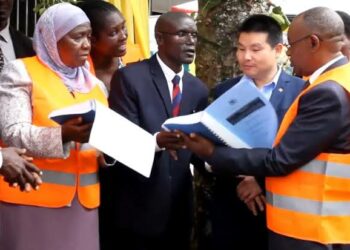Parliament on Thursday, February 21 confirmed from one of its committee investigation what the Auditor General had already spelled out – that Crane Bank and several other banks before it, had been closed either maliciously or for selfish reasons.
The report by the committee on Commissions, Statutory Authorities and State Enterprises (Cosase) presented its findings to the House, concluding that Crane Bank closure and sale by the Bank of Uganda to dfcu was an ‘illegality.’
Cosase reached this conclusion after a four- month probe in which it was able to analyse events before and after Crane Bank closure.
Cosase found that BoU’s failed to observe principles of financial prudence and in the course breached their statutory duties provided under the FIA thereby financially disadvantaging CBL.
In so doing, Cosase believes BoU “should make good the loss occasioned to the commercially fair extent of the value of the Bad Book.”
The committee also found out that BoU failed to value the assets and liabilities of GTB, NBC and CBL and considering the lapse of time and impossibility in revaluation of assets should address the probable financial loss occasioned.
And finally, Cosase, doesn’t want to leave the culpable officials off the hook.
It recommended that “All BoU officials who failed to properly execute their duties in accordance with the law should be held responsible for their commissions and/or omissions.”
These tough recommendations come at the back of Cosase findings which exposed the rot at the Central Bank. It found that the bank was ‘in auto pilot’, and the governor, Mutebile Emmanuel had left his juniors to run a racket closing and selling bank at pleasure, without giving bank owners and management enough time to go through business distress.
One of the findings on liquidity of Crane Bank is that from January 1 to January 24 2017 the bank had recovered from liquidity distress from mid-January 2017 to the time it was disposed on January 25, 2017.
The report says, “In fact, Bank of Uganda had stopped injecting money on 9th January 2017. Therefore the bank’s liquidity position had stabilized”.
Bank of Uganda closed Crane Bank Limited on October 20, 2016, after it reportedly failed to comply with a capital call on July 1, 2016.
Governor Mutebile who was portrayed by the probe as having no control over what takes place in Bank of Uganda, explained that CBL takeover was guided by the systemic nature of the under capitalized institution to avoid financial sector instability.
However, Cosase found out that BoU management did not provide a plan or assessment detailing efforts to return the bank into compliance with prudential standard despite funding it with Sh478.8 billion.
The report stated, “The above notwithstanding, at pages 7 and 8 of the special audit report of February 2019 on the accountability for the Shillings 478 billion injected into CBL, the Auditor General observed that CBL liquidity position was significantly below compliance level for the first two months of the statutory management period.
However, in the last month of statutory management, from 1st January 2017 to 24th January 2017, CBL met the required liquidity compliance levels. Therefore the bank’s liquidity position had stabilised”.
One of the oversight Cosase observed was the failure of the central bank to involve the statutory manager Katimbo Mugwanya in the sale of the bank he was managing in liquidation.
“There was even no opportunity for the statutory manager to formally handover the bank and indeed, Katimbo Mugwanya only learnt of the sale of the bank when he received a picture of loan files being ferried on his phone by WhatsApp when he was on his farm. He was told of the sale by his staff at CBL,” Katuntu said.
Cosase recommended that in the process of taking a decision to liquidate a financial institution, detailed plans for the revival should be exhausted before taking the most extreme action of liquidating.
The committee also said that the Statutory Manager’s assessment as revealed in his report prior to liquidation should be key in forming the basis for the decisions of the Central Bank in relation to liquidation.
Mr Katuntu, said, “Such a report would reveal the financial status of the institution including its ability to return to prudential compliance.”
Speaker Rebecca Kadaga deferred the debate on the Cosase report to Tuesday next week to allow legislators enough time to read the report.
Do you have a story in your community or an opinion to share with us: Email us at editorial@watchdoguganda.com











